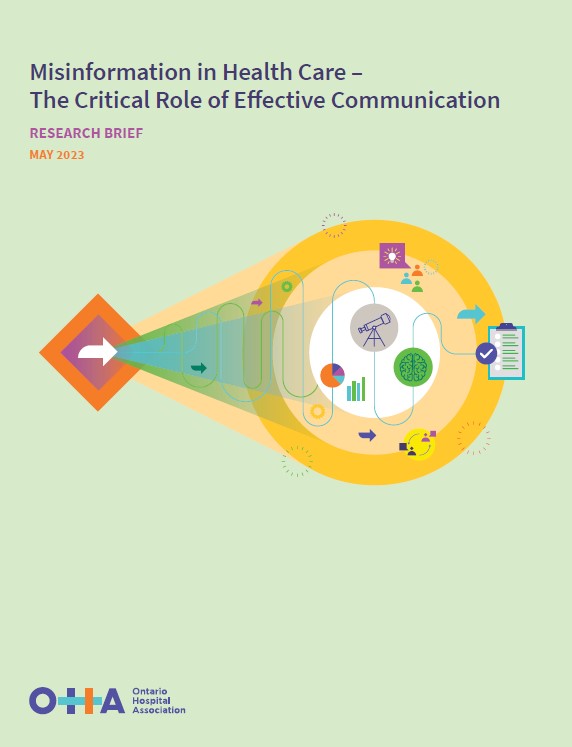False information can be classified as both misinformation (untruths spread with or without bad intentions) and disinformation (designed with malicious intentions). Mis- and disinformation are particularly harmful to its consumers and society, more broadly, if the false information relates to human health. As the COVID-19 pandemic has demonstrated, health crises tend to generate an overabundance of information, including the rampant spread of misinformation. This results in a parallel “infodemic" that makes it difficult to protect public health and control the disease. Health misinformation is not easily addressed, but as trusted sources of information, health care workers and hospitals may play a role in facilitating access to accurate, reliable information for the health of their patients and the well-being of society.
Misinformation is broadly defined as “cases in which people's beliefs about factual matters are not supported by clear evidence and expert opinion." (Pan , Liu & Fang, 2021) More than just misunderstanding or lack of access to factual information, the belief in and spread of misinformation is driven by cognitive, social, and affective factors. For example, misinformation may be perceived as “novel" or “sensational," garnering more attention and stimulating greater sharing. While most misinformation is shared in good faith, disinformation is a subset of misinformation that is spread intentionally to mislead, deceive, or confuse an audience. Disinformation is often spread in a political context or used for political gain.
Misinformation is not a new phenomenon, but the internet and social media have enabled its unprecedented spread. Social media platforms appear to act as facilitators of misinformation, often spreading it farther, faster, deeper, and more broadly than true information. To help hospital communicators better understand the impact of misinformation, the Ontario Hospital Association (OHA) has created this Research Brief. The brief also provides a range of tools and strategies to address misinformation and support management of health infodemics.

Download Research Brief